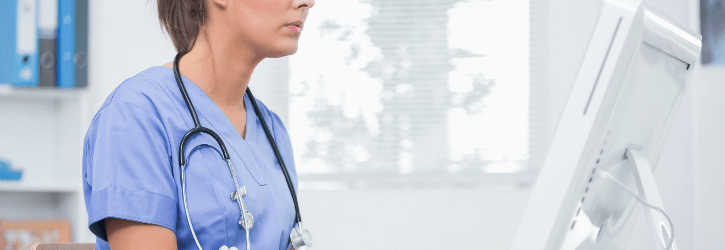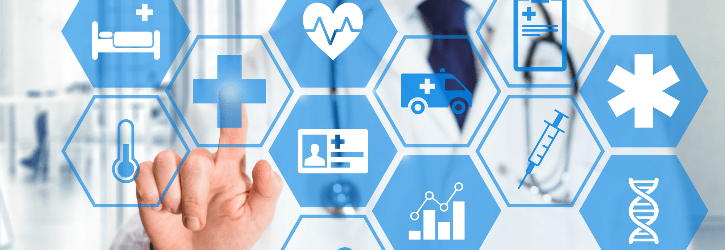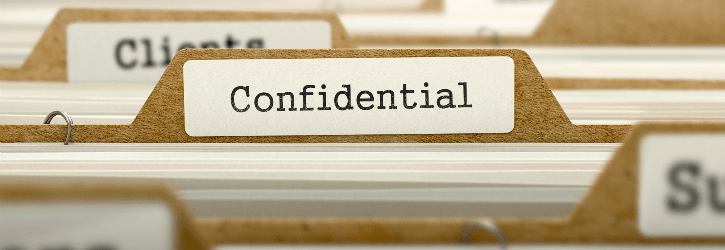
Welcome To The Data Leak Lawyers Blog
We focus on the latest news surrounding data breaches, leaks and hacks plus daily internet security articles.

We focus on the latest news surrounding data breaches, leaks and hacks plus daily internet security articles.

Official records from NHS Digital reportedly show an alarming number of NHS email cyber-attacks, with the healthcare service said to have been hit by over 11 million in the last three years.
The data for the number of attacks that were successfully blocked was at a staggering 11,352,000 in the last three years. Although we can be positive about the fact that these attacks are those that were successfully stopped, the figures show the significant number of attacks that are taking place, and how much of a target the public healthcare system is.
The NHS was one of the worst-hit victims of the 2017 WannaCry incident as well. With them being such a target, what can be done when successful cyber-attacks take place?

The Information Commissioner’s Office (ICO) has issued a fine in the wake of a documentary that was filmed that led to the Addenbrooke’s Hospital data breach relating to patient consent.
London-based production company behind the filming, True Visions Productions (TVP), were fined £120,000.00 for unlawfully filming in a maternity clinic. As the incidents took place before GDPR, they have been fined in accordance with the previous rules where maximum fines could reach up to £500,000.00; unlike the recent record-setting fine of £183m issued to British Airways.
Filming took place between 24th July 2017 and 29th November 2017 and ceased following complaints received by the ICO. The ICO said: “A patient attending the clinic would not have reasonably expected there to be cameras in examination rooms and would expect to be made aware of any filming.”

The consequences of an NHS confidentiality breach can be severe, which is why claims for medical data breach compensation must always be taken seriously.
A large volume of the individual claims we take forward are NHS data breach compensation claims. They can be common because of the volume of data that our national health service is responsible for processing and storing. On top of that, any data breach or leak involving medical data is generally severe given that it’s personal and sensitive information.
Data breach compensation amounts for these kinds of cases can be typically high. But what amounts to a legal case, and can we help you?

If you’ve been the victim of an NHS cybersecurity breach, it’s important to know what you can do in terms of your rights for legal justice.
The NHS is a huge target for cybercriminals, and a lot of this stems from a lack of infrastructure and investment. It takes the government to ensure that the NHS is properly equipped to defend itself in the digital age, and it appears that they’re still falling short.
For the victims whose information is misused and / or compromised, it’s important to know what can be done when it comes to medical data breach compensation claims.

Healthcare systems data breach incidents are likely to continue rising, so what can you do as a victim of a breach, and can you claim compensation?
Compensation for a healthcare data breach is important. We’re not just talking about personal information when it comes to a medical data breach, we’re talking about incredibly sensitive health information. This is why data breach compensation amounts can be high for these kinds of cases given the impact a breach can have on a victim.
As a specialist firm of data leak lawyers who have advised thousands of people and are fighting for justice in dozens of group and multi-party actions, we may be able to help you.

For the victim, stolen medical data can lead to a significant amount of distress, and there can be a huge number of risks if your private and sensitive information has been exposed.
We know that criminals and fraudsters target medical data because it can be valuable to them for a number of reasons. It can be used for ransom and identity theft, or even for criminals to produce forged documents like receipts and prescriptions. The so-called ‘dark web’ is reportedly rife with medical data that’s up for sale.
As a victim, what can you do if your medical data is stolen? Can you be eligible to make a claim for medical data breach compensation?

A senior nurse caught snooping on medical records has reportedly been suspended in yet another case of an NHS employee abusing their rights of information access.
Carol Anne Rodda, in her capacity working for University Hospitals Coventry and Warwickshire NHS Trust data breach, has reportedly been suspended for 12 months for a number of breaches. A number of the medical records data breach compensation claims we take forward involve healthcare employees improperly accessing information, so we know how bad these kinds of incidents can be.
There have been a number of occasions where the Information Commissioner’s Office (ICO) has been forced to take action against staff for snooping. The ICO has also had to issue warnings because of so many instances of it happening.

If your private and sensitive medical records have been exposed, our lawyers can help you get the justice you deserve – and we can help you on a No Win, No Fee basis.
Medical records data breach compensation claims are one of the most common types of cases we take forward. Healthcare data breaches cases are high in terms of volumes, and the impact can be enormous. When it comes to the loss of control of personal information, medical data is usually the most serious.
Over the years we’ve been fighting for justice for data breach victims, thousands of people have come to us for help. Many of the individual cases we take forward are medical data claims, and some of the most severe group / multi-party actions we run stem from infamous healthcare sector incidents.
We can help you.

NHS data compensation claims could be set to keep rising as news of substandard systems hit the media headlines this month.
We can tell you from experience that a large proportion of the people we help for individual and group action / multi-party cases are for NHS data breach compensation claims. Worryingly, recent investigation results led to MPs reportedly branding some NHS systems as ‘unfit for purpose’, with other systems branded as ‘hopeless’, which doesn’t fill patients with confidence at all.
Part of the problem is understood to be the variety of systems used, and the age of some of the IT the NHS are relying upon.

Confidential document disposal is a matter that all organisations – both public and private – must take seriously to avoid a data breach incident. But we know things don’t always get done properly as they ought to, and that’s where we come in.
Important data protection laws – including GDPR that came into force this time last year – encompass the handling, and therefore destruction, of data. Confidential documents must not be binned with other general waste because it may lead to a significant data breach. Confidential waste should always be disposed of in a way that ensures information will not be leaked.
If you’re the victim of a data breach that’s caused by a confidential document disposal failure, you may be able to make a claim for compensation.
EasyJet admits data of nine million hacked
British Airways data breach: How to claim up to £6,000 compensation
Are you owed £5,000 for the Virgin Media data breach?
Virgin Media faces £4.5 BILLION in compensation payouts
BA customers given final deadline to claim compensation for data breach
Shoppers slam Morrisons after loyalty points stolen
Half a million customers can sue BA over huge data breach
Lawyers accuse BA of 'swerving responsibility' for data breach
The biggest data breaches of 2020
Fill out our quick call back form below and we'll contact you when you're ready to talk to us.